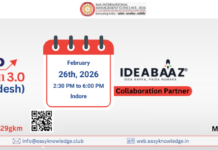New Delhi, Delhi, India | 24th March 2020: With new studies pointing to chlorination of water as one of the potential ways to combat novel Coranavirus COVID-19, Alkali Manufacturers Association of India (AMAI) has kicked off an outreach programme beginning World Water Day (22nd March) aimed at raising awareness on chlorination of drinking water for disinfection.
The campaign will entail close liaison with Public Health Engineering Departments (PHEDs) and municipal bodies across different States in the country. AMAI is the august body of manufacturers engaged in production of chemicals such as Caustic Soda and Soda Ash with Chlorine as a by-product.
“Our confidence stems from the successful training sessions on water chlorination and chlorine safety carried out in several States in the last few months in association with municipal bodies. We firmly believe the disease burden owing to water borne diseases can be significantly brought down through chlorine disinfection. This also ties in with achievement of Sustainable Development Goal 6: Water and Sanitation for All by 2030,” said Jayantibhai Patel, President, AMAI.
The States where AMAI has recently conducted training sessions on disinfection through water chlorination and chlorine safety include Maharashtra, Madhya Pradesh, Gujarat, Meghalaya, Telangana and Goa.
“The outbreak of COVID-19 has come as a challenge. As other human coronaviruses have been shown to be sensitive to chlorination, the COVID-19 virus is likely to be more sensitive to chlorine,” Patel said.
The World Health Organisation (WHO), in a technical paper released earlier this month titled ‘Water, Sanitation, Hygiene and Waste Management for the COVID-19 virus‘ has stated that the provision of safe water, sanitation and hygienic conditions is essential to protecting human health during all infectious disease outbreaks, including the COVID-19 outbreak.
WHO guidelines recommend chlorination with a 0.5 ppm free residual chlorine in water distribution for disinfection. AMAI members are making adequate availability of chlorine at all locations to meet the enhanced demand for drinking water disinfection and the Alkali industry is fully committed to supporting the government’s effort, stated K. Srinivasan, Secretary General AMAI.
According to AMAI, in India, 163 million people lack access to safe water. The World Bank estimates that 21% of communicable diseases in India are linked to unsafe water and the lack of hygiene practices.
AMAI is advocating use of chlorine to disinfect drinking water and waste water. The Association has been imparting free training to municipal water treatment and sewage treatment personnel on chlorination techniques and safe handling of chlorine.
The chlor-alkali industry also produces sodium hypochlorite and calcium hypochlorite which have been recommended by WHO, UNICEF and Government of India for cleaning of disinfected surfaces, disposal of used infected masks and for sanitation and hygiene. The industry is fully geared to meet the rise in demand, AMAI stated.






